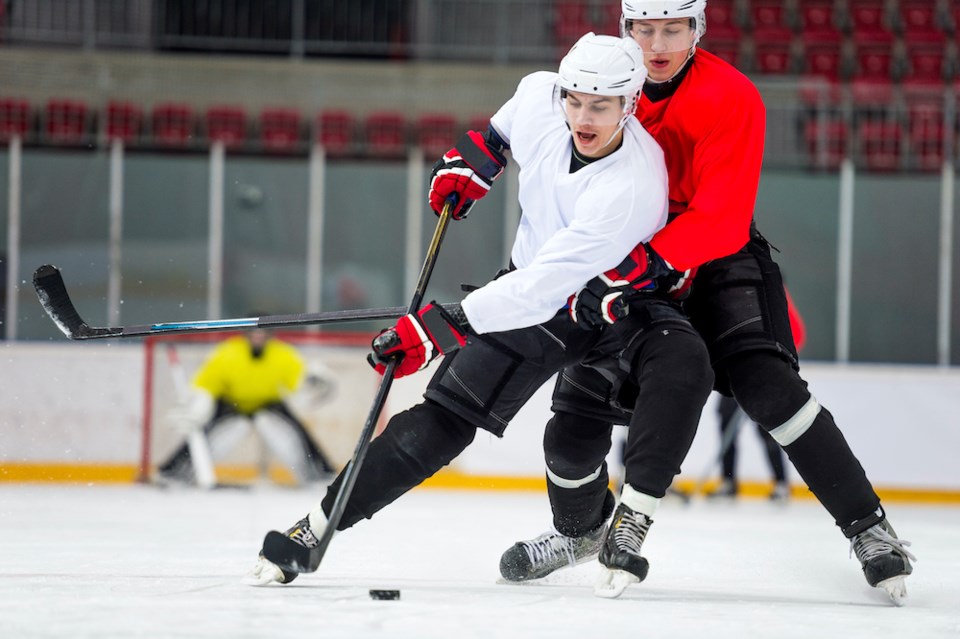All adult team sports—indoor or outdoor—are now suspended in British Columbia, as part of a a new health order intended to help reduce the spread of COVID-19, provincial health officer Dr. Bonnie Henry announced Wednesday.
However, those under the age of 19 who are involved in youth sports programs are still permitted to continue training and practicing under the order, though regular games are currently off-limits.
The new restrictions come following numerous instances of COVID-19 transmission that have stemmed from these sorts of activities. According to Henry, about 10 to 15 per cent of B.C.'s confirmed coronavirus cases have been related to physical fitness and sport activities, "and that's an underestimate," she said.
So, if team sports and group fitness are inherently risky, why the dissonance?
Adult sports linked to more documented instances of COVID-19 transmission
It mainly comes down to the tendency for adults to look at sports as social gatherings, Henry explained during a media briefing on Thursday, Dec. 3, in addition to a higher number of documented transmission events linked to adult teams than minor leagues.
"Unfortunately, those types of gatherings are leading to transmission events," said Henry, referencing the case of a specific oldtimers' hockey team she mentioned the previous day.
"We've seen transmission events in curling, we've seen it with a number of adult team sports. So now's our time. We need to step back from those, to take that temptation, unfortunately, away and make sure that we're not providing those opportunities for the virus to take hold and travel between different communities as we have seen in the last few weeks."
It's not so much the sports themselves that are leading to a heightened risk of transmission, noted Henry, but rather teams' collective behaviour prior to or following their games.
"It's the locker room, it's the before, it's the afters of going for a coffee or a beer after a game" that has proven to be the riskiest, she explained.
"But sometimes it's very difficult, because much of that is built into the culture of many teams," Henry acknowledged. "So let's focus on our children, let's focus on keeping those safe opportunities for young people to stay active for those sports that they can do right now."
Games off-limits, kids' sports must stick to skills and drills
Supervised sports for children and youth have not proven to be as risky a source of transmission for the virus, Henry explained.
"We recognize, of course, the importance for young people of having these opportunities to participate in sport," she said. "We are hoping that we can preserve—safely—those opportunities for young people, without the riskier parts of what they've been doing around playing games and travel."
When asked whether B.C. has seen transmission specifically linked to children's games, and whether the risk of transmission during those games was enough to warrant their cancellation, Henry shared a similar explanation to the one she offered to adults.
It's not so much what happens on the ice or on the field that's problematic, she said, but the social interactions that take place around the game itself. While the province initially banned both spectators and travel for the purpose of sport in an attempt to diminish these risks, "we're finding that it's still a challenge," Henry said.
"In discussions with many of the leagues, that was when we recognized that it made it a lot simpler for them to have very clear restrictions. The guidelines that have come out from viaSport, we were looking at modifying them to find some ways of having limited games in local areas, but it became very complex.
"So to simplify things—particularly now, because we are seeing rising numbers of cases in communities around this province and across this country—now is the time where we need to just take a step back from that," Henry continued. "I know that many of the hockey leagues and soccer leagues and other youth leagues have already done this, so it makes it very clear and equal for everybody."
Henry also took the opportunity to appeal directly to those young people who might be missing out on the games they've been working hard to prepare for.
"I know that things that you look forward to have been so adversely affected by this pandemic," she said. "Young people have really taken the brunt of some of these changes, and I know that it's hard. But I also know that you guys are adaptable and you're superheroes, in my mind, and I know that you can make this work."
How to stay fit while team sports, group fitness remain banned
While Henry acknowledged that sports are similarly important to many adults, she encouraged those who might be missing team sports to instead engage in activities where you can maintain a safe distance, like going for a run, a walk or a swim, playing tennis or heading out for a round of golf.
With group fitness like spin classes, yoga and high intensity interval training still prohibited under the current provincial health orders, Henry also offered up some inspiration to look for safer, more remote ways of staying fit—for example, the gym she belongs to offers Saturday morning circuit classes via Zoom.
"We can come together and have opportunities for fitness in our lives, and we're trying to find that balance of making sure we have those important opportunities," she said.



